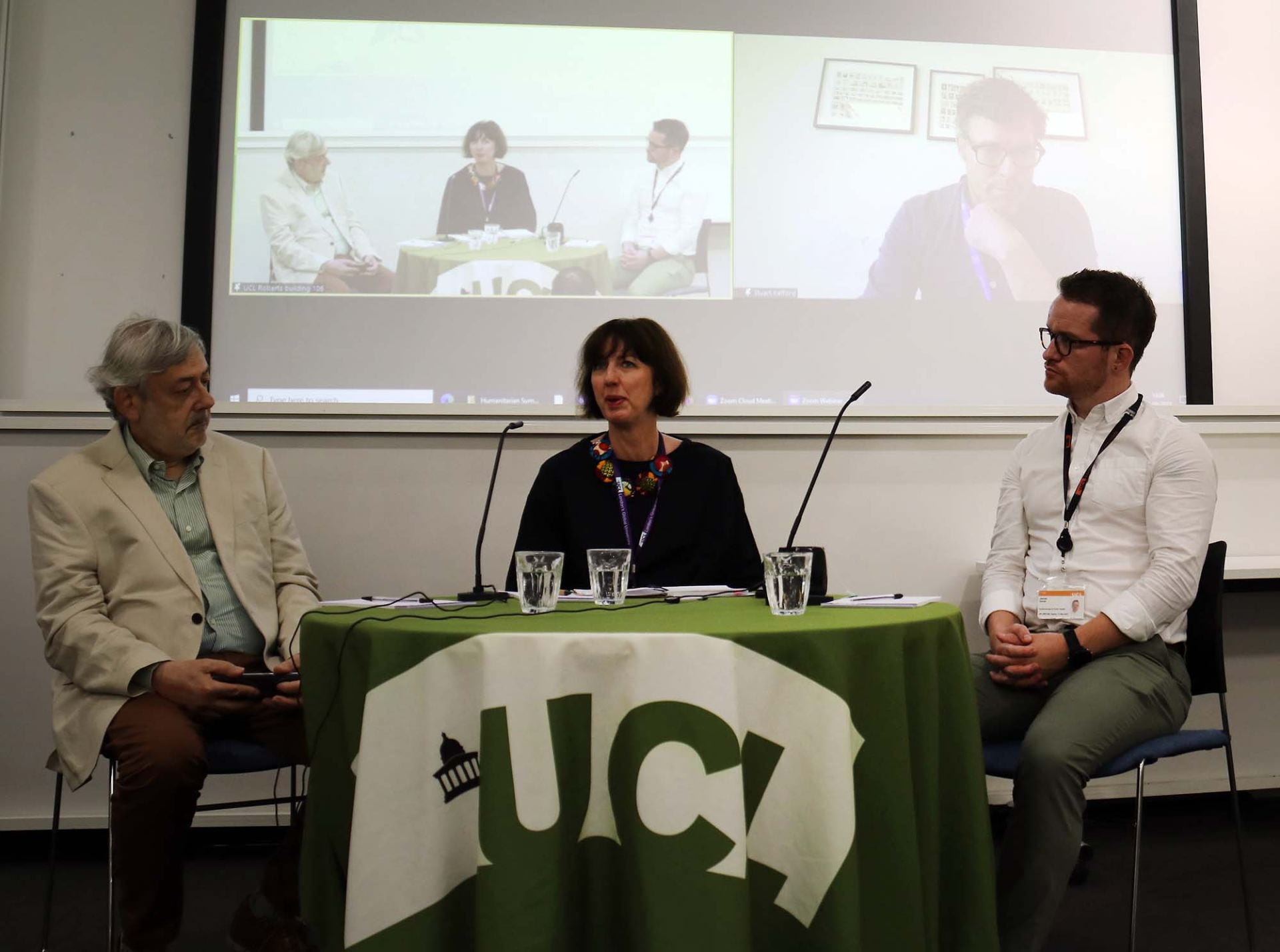Redundant Charities: Escaping the Cycle of Dependence
By Estella Carpi, on 24 November 2023

In a world where humanitarian work is now a career aspiration and not just an ad hoc grassroots mission, Weh Yeoh believes foreign charities working in contexts of disaster and vulnerability should make themselves redundant. Redundant Charities. Escaping the Cycle of Dependence, takes us through Yeoh’s professional journey in Cambodia as a founder of OIC, the Organization to Improve Communication and Swallowing Therapy Services.
Redundant Charities is an easy-to-read book adopting a first-person style, which charity practitioners, researchers and beneficiaries can fully relate to. The book is composed of eight chapters all offering ethical as well as practical considerations on charity work in disadvantaged geographies.
On the one hand, Yeoh does not talk indistinguishably about practitioners: the ones who occupy the lowest grades of the charity hierarchy remain the locals. On the other, the book only refers to a general category of charities, while the insights of the book go well beyond the charity sector, also speaking more broadly to the whole humanitarian and development world.
Moral self-licensing
One of the main take-away messages is the importance of not indulging in “moral self-licensing” (p. 22). According to Yeoh, it is a frequent practice for charity founders to propose activities that can boost their own egos rather than basing such activities on what is really needed from a local perspective. Without explicitly engaging with the related debates in international academia, Yeoh gets deep into discussions that relate to what scholars have discussed in terms of “moral economy”: he challenges the glorification of the practitioner’s sacrifice, the extraction of their egos from work itself (see p. 25) and the narcissism of feeling essential (p. 104). All traits that quite commonly define the approach of international charity professionals to the areas in which they operate: an unbearable lightness of expats, which anthropologist Redfield theorized as the shallow engagement of NGO practitioners with local societies while receiving economic benefits and accruing professional authority.
Along these lines, the author argues that this problematic focus on the self rather than on actual needs is often translated into “voluntourism” (p. 23), where western volunteers are willing to pay great sums in order to gain “field experience” and then claim such experiences as “expertise” once back in their countries. Such claims happen either in the form of professional assets on their CVs, or as moral claims to have done something good, regardless of charities’ impact and the volunteers’ knowledge about the societies in which they have gained such experiences. This section of the book offers important self-reflections from the author, reminding me of well-known Monsignor Ivan Illich’s To hell with good intentions speech, which was delivered in light of foreign volunteers going to Mexico in the 1960s to engage in acts of assistance and care.
Localization
Another fundamental take-away message is how unneeded it is to learn local languages and cultures before intervening in a needy area when undertaking a career in the charity sector. This especially happens when the charity founder (or, more broadly, the practitioner) is a vector of white, male-dominated forms of hegemonic humanitarianism, and therefore likely to emerge as a professional authority. In the past, I named this attitude of neglecting local cultures and language “epistemic failure”, which is rampant in the western approaches to the so-called Global South. In-depth knowledge of local languages and cultures would instead make us better placed to understand actual needs on the ground and, importantly, avoid a minimalist logic of believing that “something is better than nothing”, as Yeoh critically contends (p. 47).
In a nutshell, to radically reform the charity sector, Yeoh implies that foreign practitioners should make bigger efforts to learn local languages and cultures, and thus advocate for an internal change within the system itself. In fact, to reform the charity power-based structure, the “localization of aid”, which undergirds the 2023 UN Sustainable Development Goals, should be a principle shared by foreign as well as local practitioners.
Yeoh also reflects upon the idea of local ownership, which stands as one of the key values underpinning his personal work in Cambodia with his own charity OIC as well as the work of several other colleagues he mentions in the book. His thoughts invite us to value local knowledge and views as they are paramount to conduct charity work ethically and accurately. The book triggers fundamental questions: Should “local ownership”, therefore, be the end of the story? How do we ensure local ownership when external capacity and resources are still thought of as the very first step for any sort of subsequent ownership to take place? Can something like “ownership” come next, after capacity-building processes are managed from the outside?
Becoming redundant
Importantly, according to the author, an effective exit strategy cannot but lie in challenging the power structure and rendering us unneeded and redundant on the ground. In the current scenario, where charities tend to roll out long-term programmes due to protracted crises and/or diversified chronic needs, organizational continuity emerges as a priority and is forgetful about the need-based approach it formally keeps fostering.
The author clearly states that he avoids sharing experiences of failure, because there would be too many. Instead, to my mind, a public failure discourse, highly unlikely in the charity sector due to the threats to funding, would enable concrete steps towards ethical and eventually redundant charities.
Yet a thought about the very concept of redundancy, which necessarily involves shifting temporal dimensions: to make yourself redundant, you need to be able to remain and work in a setting for a long period of time. While charities – either humanitarian or development oriented (or both) – all adopt a different approach to time, their professional staff are known to move frequently from one country to another, from one human need to another. Such frequently short timeframes make Yeoh’s five-year experience of leading OIC in Cambodia quite exceptional. Indeed, the politics of professional recruitment in many international charities are often grounded in an accumulation of different geographic experiences, which, thus, rewards such a frantic personal mobility. This very structural flaw in the recruitment system should change before we can ever encourage practitioners – and founders, to begin with – to make themselves redundant.
On the practical side, Yeoh’s recommendations are sound and clear: live up to the key mission you have studied hard for; make yourself redundant by leaving sooner rather than later; and, consequently, make donors unneeded – and this, when charity is not centred entirely around economic investments, should be good news to them. This book proposes redundancy as an ethical value as well as an effectiveness proof in the charity sector. In this way, it can challenge the abstract and abused anti-donor talk, which is widespread in the charity sector as it is used to motivate and justify beneficiaries’ discontents. Much can still be done at a practitioner level, and Redundant Charities powerfully remind us of how.
Estella Carpi is an Assistant Professor of Humanitarian Studies in the Institute for Risk and Disaster Reduction at University College London. With a background in social anthropology and sociology, her work mostly revolves around humanitarianism, identity politics, and forced displacement in Lebanon and Türkiye.
 Close
Close


